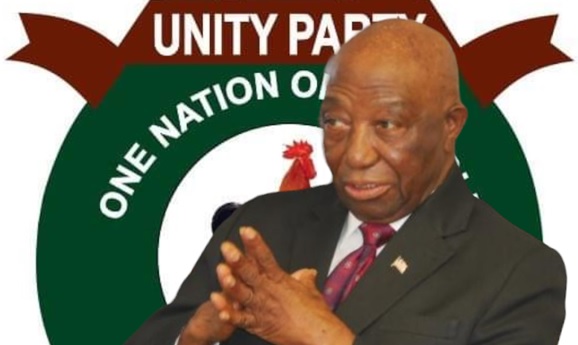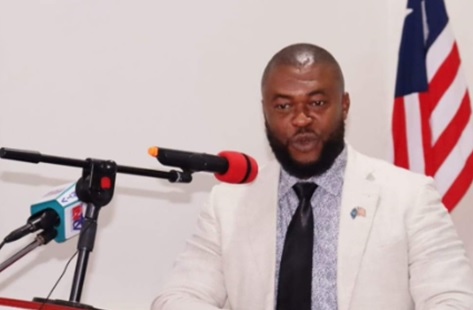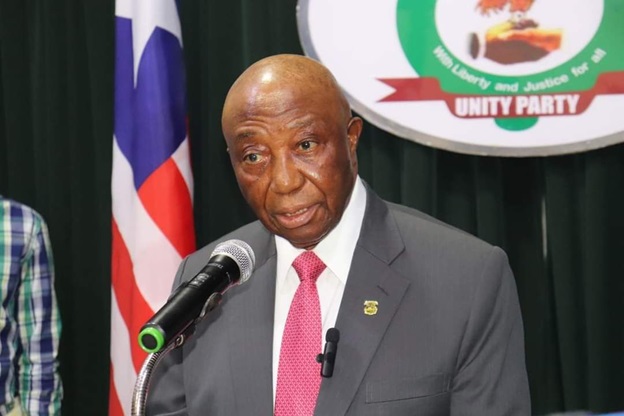MONROVIA – Amara Konneh, former Finance Minister and current Senator, recently penned a scathing critique of President Joseph Nyuma Boakai’s first 100 days in office. In his write-up, Konneh highlighted the administration’s failures and missed opportunities, raising questions about the Unity Party’s ability to deliver on its promises. This analysis by Liberian journalist Socrates Smythe Saywom delves into Konneh’s points and explores their implications for the ruling establishment, President Boakai’s leadership capabilities, and the future of the Unity Party.
Konneh begins by pointing out that President Boakai has little to show for the $22 million spending package provided by the Legislature, achieving only 10 out of 100 commitments. This performance, he argues, is only marginally better than that of former President George Weah, whom Boakai’s Unity Party criticized for incompetence. The lack of tangible progress raises doubts about Boakai’s effectiveness and the Unity Party’s governance.
Konneh outlines three critical areas that Boakai needed to address: building broad-based support domestically and internationally, assessing the country’s financial position, and forming an inclusive government of vetted professionals. Despite offering a detailed non-partisan White Paper to guide this transition, Konneh asserts that Boakai ignored these recommendations, leading to the current stagnation.
One of Konneh’s most significant criticisms is Boakai’s failure to secure additional funding commitments. Despite initial success in Washington, D.C., where $60 million in development financing was promised, follow-up actions necessary to unlock these funds were neglected. The administration’s focus shifted towards securing jobs for allies rather than addressing the broader financial needs of the country, missing a crucial opportunity to stabilize Liberia’s economy.
Konneh’s account suggests a deep-seated issue within Boakai’s administration: insecurity and entitlement. He describes how Boakai’s inner circle distanced themselves from external advisors, dismissing their contributions and isolating experienced professionals. This inward-looking approach has not only hindered progress but also fostered a culture of sycophancy and complacency.
Furthermore, Konneh draws attention to Boakai’s missed high-profile meetings, particularly with the African Development Bank. Instead of pursuing vital financial discussions, Boakai’s team focused on resolving minor debt issues, showcasing a lack of strategic vision. This misstep exemplifies the administration’s broader failure to engage effectively with international partners.
The implications of Konneh’s critique are far-reaching. For the ruling establishment, it signals a need for introspection and reevaluation of their strategies. Konneh’s detailed account of internal dysfunction and missed opportunities exposes significant weaknesses in Boakai’s leadership. If these issues are not addressed, the Unity Party risks losing credibility and support among Liberians.
Questions about Boakai’s capability to deliver on his promises are inevitable. Konneh’s write-up portrays a president who is either unwilling or unable to leverage the expertise and support available to him. This perception could undermine Boakai’s standing both domestically and internationally, complicating his efforts to govern effectively.
Looking ahead, the Unity Party faces a critical juncture. To regain momentum and public trust, the administration must broaden its consultation processes, incorporating diverse perspectives to inform its decisions. Transparent and inclusive governance will be key to overcoming the current challenges and ensuring sustainable development.
Konneh’s critique does not only highlight Boakai’s shortcomings but also serves as a call to action. With nearly six years remaining in his term, Boakai has time to recalibrate and implement meaningful reforms. The administration must prioritize effective leadership and accountability to build a legacy of progress and stability.
In conclusion, Senator Amara Konneh’s write-up is a stark warning for President Boakai and the Unity Party. It underscores the urgent need for reform and strategic action to address the administration’s failings. By acknowledging these weaknesses and working towards inclusive and transparent governance, Boakai can still steer Liberia towards a brighter future.







